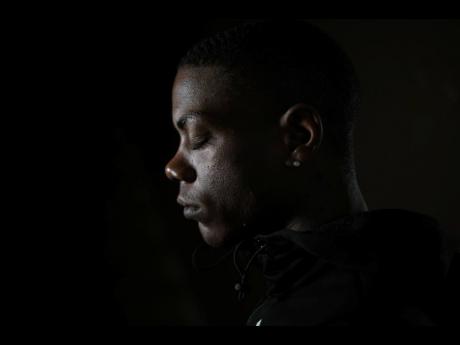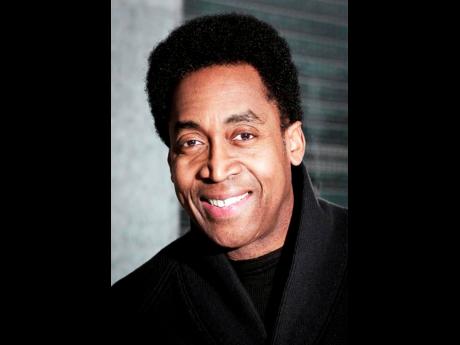Religion & Culture | Race first Why we must address self-hatred and disunity among blacks
We could pretend it doesn’t exist or it’s in its last throes of relevance. We could marginalise it and chalk it up to mere ignorance. Of course, we would all like to believe in the idyll. Sadly, black self-loathing and disunity have more legs than imagined.
In my article, ‘Sex And The Death Of Black Culture – Why There Is An Urgent Need For Self-Reflection’ ( The Sunday Gleaner, September 8, 2019), I explored black self-loathing in the form of sexual degradation. It stirred a response that was overwhelmingly in favour of my argument.
One letter, though, mentioned that I somehow missed the mark, that the Caribbean isn’t characterised by a black culture, and that race is an American construct.
“People do realise that there’s no ‘black culture’, right?” it stated. “Me having a similar skin colour and features as someone who lives in Ghana doesn’t at all mean our cultures will be the same. They aren’t. Common sense should be able to tell you that since the United States is a very race-focused society, there is a ‘black American’ culture. However, there is no ‘black culture’ in the Caribbean, as Caribbean nations are far less focused on race and most already have majority-black populations. If anything, speak about the Americanisation of our culture, because that is what it is. We’re a country who is heavily influenced by the American media. Beyonce’s experience in the United States has absolutely nothing to do with me, a Jamaican woman. We are NOT black Americans and our experiences and culture are NOT the same.”
I strongly disagree.
As a pan-Africanist, I find fault with any attempt to dissect the black experience. The black experience, a social and political reality, is the same the world over. No question. Kwame Ture (Stokely Carmichael), Marcus Garvey and countless Caribbean blacks who embedded themselves in the American struggle for racial justice understood this.
Yes, I am mindful that cultural expressions vary, but as a collective, we share a similar historical experience that was engineered to destroy us psychologically (and has succeeded to a great existent). Isn’t Africa the common thread in our diasporic (cultural) expressions?
POISONING OUR CHILDREN
Ever Afrocentric, I must guard against actions that wilfully harm our children. While Beyoncé is an American product, her reach is global. Black girls emulate her. On many levels, Beyoncé transcends music. She influences how young people view themselves.
Frankly, too many of our so-called stars are controlling the black narrative, poisoning our children in the process. If black self-loathing in the form of colourism was dying a natural death in the Caribbean, it has, like Lazarus, returned, thanks to skin bleaching, a practice endorsed by black stars, including Beyoncé.
In his Skin Bleaching and the Deconstruction of Blackness, an academic offering by Christopher A.D. Charles, a senior lecturer in political psychology at The University of the West Indies in Jamaica, the practice is said to be prevalent in the Caribbean and Africa, of all places. Dr Charles calls it a phenomenon. He cites a number of studies that explain why so many black people are bleaching. They include “low self-esteem, self-loathing, the internalization of light skin values as the ideal and the miseducation about Blackness in general and beauty, in particular.”
He details prevailing authorship on the subject that states that, “There is bombardment from the Caucasian colour code in which blacks are judged by the colour of their skin and the black self is stigmatized as ugly; that bleaching is not only indicative of an identity crisis but it is fashionable, beautiful and it provides socio-economic advantages; [and] that it is attractive to some black men and women who only date members of the opposite sex who have brown or white skin – the Oreos (cookie) people who are white within and black without so they have a white worldview.”
In the Caribbean countries where blacks are the majority, race continues to rear its head in the form of colourism. In Trinidad and Guyana, where East Indian and blacks share demographic parity, race is still a bedevilling factor. And in every part of the world, from China to Dominican Republic, blacks can fill a book with tales of their experiences.
MY OWN RACIAL EXPERIENCE
In my upcoming book, The Conflict of Identity – From the Slave Trade to Present Day – One Man’s Healing in Benin, I recounted my own racial experience as a Caribbean man in the United States realising that I could never separate myself from the black American.
An excerpt reads: “I adjusted well as I gained employment in education and later served in the United States military. I studied journalism and pursued graduate studies.
“However, amid this supposedly seamless transition, there were two racial incidents: the Long Island Railroad shooting by Colin Ferguson in 1993 and the 1994 O.J. Simpson trial. These triggered an unexpected response within me and proved that race was as much a social and political construct as it was foundationally psychological.
“When Simpson was found to be innocent and with Ferguson murdering several people using black rage as his defence, I became fully aware of racial identity and the phenomenon of collective guilt. America proved to the entire globe that it was far from moving ahead from her racial past.
“Strangely, I felt weighed down by my blackness; it was like the burden of wearing layers upon layers of clothing in the dead of winter. There was no escaping who I was; a black man in a racial world. I struggled with this haunting feeling. I was convinced that the insecurities and anxieties I felt were not solely my own projections. Racism was very real, almost palpable, and there was a dire realisation that something had to change, either my inner world, society, or both.
“What I immediately learned from these experiences was that I had not been impervious to racism and colourism in Trinidad. I had merely repressed the pain I encountered there.
“The United States, with its history of racism against its own citizen s, can easily unleash an avalanche of emotions when you least expect it. It is in the United States that I began to learn about the black experience, which is one experience that is universally identifiable...Over time, I realised that our adaptive responses to oppression, regardless of country, are similar.”
Clearly, there is no separation of blacks in the real world. To think such is absurd.
What is certain is that separation will signal the death knell for any oppressed people. Jewish groups have long recognised this life-saving truth. Surely, Iranian Jews, Romanian Jews, Ethiopian Jews, American Jews and Russian Jews are culturally different and schisms do exist among Jewry. But before the world they present a united front. They recognise one overriding factor that binds them – their Jewishness.
In like vein, we must live by the motto: Race First.
- Dr Glenville Ashby is an award-winning author. His upcoming book ‘Conflict of Identity: From the Slave Trade to Present Day – One’s Man’s Healing in Benin’ will be released in October 2019. Email feedback to editorial@gleanerjm.com and glenvilleashby@gmail.com, or tweet @glenvilleashby


